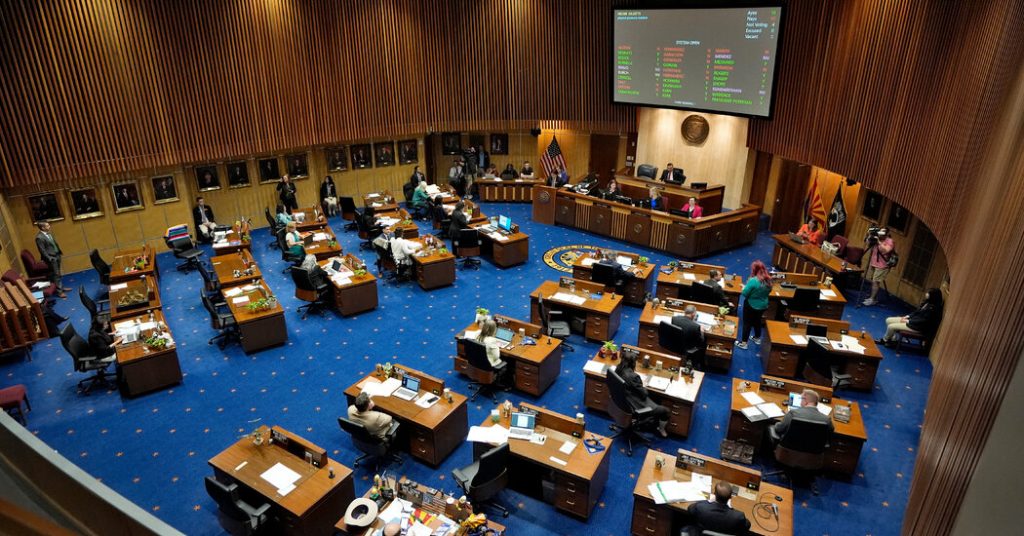The Arizona Supreme Court recently upheld a ban on almost all abortions dating back to 1864, causing confusion and chaos across the state. Frantic patients flooded abortion providers with calls while Democratic lawmakers pushed to repeal the ban in order to protect women’s health and freedoms. However, Republican leaders in the Legislature blocked efforts to undo the ban, leading to frustration and anger among Democrats who accused their Republican colleagues of backpedaling and avoiding a policy battle.
Despite pressure from Democrats and some Republicans to repeal the law, it remains uncertain whether the Republican-controlled Legislature will take any immediate action on proposals to repeal the ban. Some Republican lawmakers criticized Democrats for trying to rush a decision on an important topic without thorough discussion and consideration of all viewpoints. The court’s ruling had not yet taken effect as the legal battle over the 1864 law heads back to a lower court for additional arguments over its constitutionality.
The decision to uphold the abortion ban has exposed divisions among Arizona Republicans over their support for abortion restrictions. In the wake of the court’s ruling, some Republicans who previously voted for abortion restrictions or legal protection for fetuses shifted their positions and called for a repeal or other legislative fix. Former President Donald Trump criticized the court’s decision, while the state’s ultraconservative Freedom Caucus applauded the ruling, viewing it as a protection of innocent lives and vowing to oppose efforts to undo it.
Clinics and patients are grappling with the legal and administrative uncertainties left by the court’s decision, unsure of when the 160-year-old ban will go back into effect. Many patients are anxious and concerned about their ability to access services, while healthcare providers worry about potential legal repercussions if they assist with abortions. Hospitals and their lawyers have worked to establish policies to address these concerns, but the overall climate remains uncertain and potentially damaging to women’s health.
Abortion rates in Arizona declined in the aftermath of the court’s ruling, with providers and patients facing confusion and fear about the legal status of abortion in the state. Emergency room doctors, anesthesiologists, and obstetricians expressed concerns about potential lawsuits and legal risks associated with providing abortions. The state’s attorney general, a Democrat, has pledged not to prosecute under the law, but providers are cautious and hesitant about continuing to offer abortion services given the uncertain legal landscape.
The future of abortion access in Arizona remains uncertain, with providers, patients, and lawmakers grappling with the implications of the court’s decision to uphold the 1864 ban. Democratic lawmakers are pushing for a repeal to protect women’s health and freedoms, while Republicans are divided on the issue. The legal and political turmoil surrounding abortion in Arizona reflects broader national trends following the overturning of Roe v. Wade, highlighting the vulnerability of abortion rights in traditionally conservative states.













